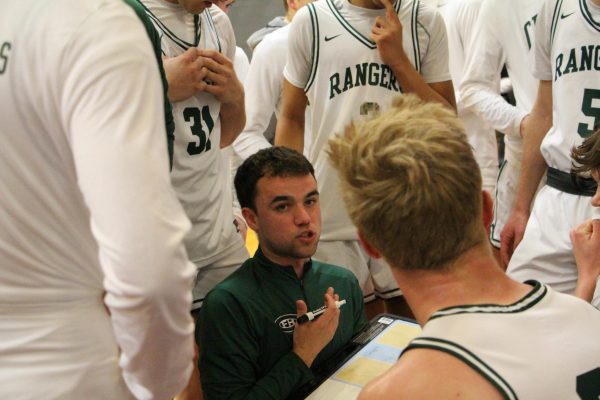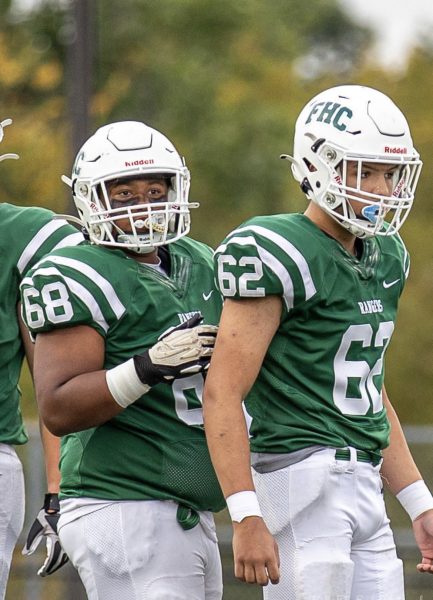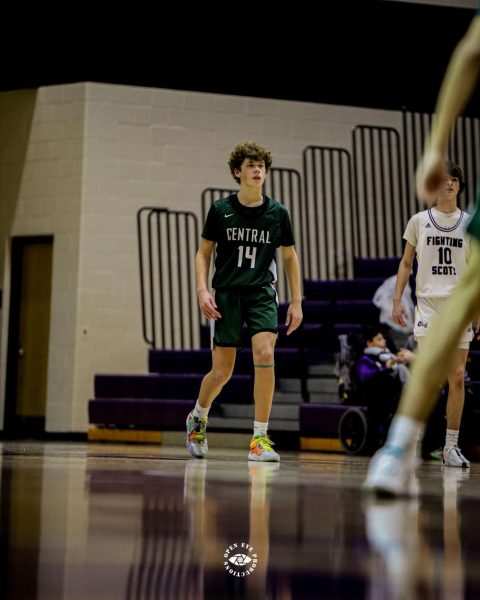FHC Sleeping
3D illustration of double bed hovering in air and with white cloud above. Blue toned computer graphics. Moody attitude.
How many hours of sleep do you get per night? Is it between five and six hours? While many students think that this is enough time to rest, the average teenager needs between eight and ten hours of sleep each night. So why don’t high school students choose to make that a priority each and every day?
There are many reasons why one should focus on getting an ample amount of sleep each night. Scientists have proven that some of the most noticeable benefits are being sick less often, staying at a healthy weight, lower risk of serious health problems, reduced stress and improved mood, the ability to think more clearly, and getting along better with other people. These aren’t the only reasons why a high school student would want to focus on getting more sleep, but for those who are struggling in school and athletics, more sleep could be the answer to their problems.
“I think it is important to get enough sleep so that I am ready and energized for the day,” said senior softball player Sydney Ashcroft, “I also notice that when I get more sleep at night I find myself taking less naps during the day.”
It has been proven that more sleep along with better quality sleep results in an increase in performance and competitive success in all athletes. Sleep allows your body to solely focus on recovery, which is immensely important for athletes. Getting enough time to rest gives your body time to re-energize in between increments of exercise.
“More sleep helps me recover from consistent hard training days and also prepares me for the following days and practices,” quoted senior lacrosse player Gabby Hendricks. “For weekend tournaments I try to go to sleep earlier, around 8-10, because it’s always early wake-ups to get to the field early. On weekday games my sleep schedule is usually harder to maintain with homework and extracurriculars.”
More sleep also allows for more mental clarity. When your brain gets the chance to rest and recover for long periods of time, it enables you to think more clearly and learn at a faster rate. This can help in the classroom and on the field, having the right frame of mind is important for both aspects of a student-athlete’s life.
Not only is more sleep beneficial mentally, but also physically. More sleep means that your muscles will have less fatigue and an increased release rate of protein-building amino acids which will help grow your muscles bigger and stronger over time. That is why coaches always preach to their athletes that it is so important to get enough sleep. A well rested body is a strong body, and athletes need to be at one hundred percent if they want to see the best results in their play.
“I focus on getting enough sleep because I know how important it is,” stated senior Calvin Balanda. “Getting a sufficient amount of REM sleep provides me with a strong recovery from my training.”
Getting enough sleep is not as hard as it seems, you don’t have to give up doing the things you love to ensure other things get done just so you have enough time to get into bed by ten. As long as you prioritize your day correctly, and refrain from getting distracted by things such as your phone, getting eight hours of sleep is well within reach. So, I challenge you to get at least eight hours of sleep each night, and see how it may change your everyday life in not only the classroom, but on the field of competition too.

Matthew Holtgreive is a senior at FHC and is going into his first year as part of the Sports Report class. Matthew participates in baseball at FHC and...













